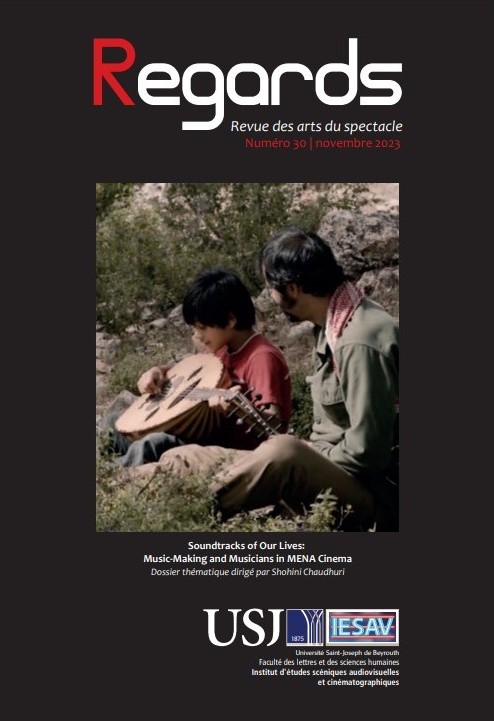Abstract
The final scene of Elia Suleiman’s film, It Must be Heaven (2019), ends with the actor/director sitting in an Arab bar in the city of Haifa, while the young crowd is dancing to “Arabyon Ana” (2000) by Lebanese singer Yuri Mrakadi. The Arabic music is a testimony to a Palestinian-Arab culture that resists erasure. The songs in Suleiman’s film not only form part of the soundtrack and provide a commentary on the unfolding scenes but also deliver a chronology of events that firmly places the country within its Arab milieu. Mirroring the thoughts of the main character, they highlight issues of exile and dispossession. Likewise, Panah Panahi’s Hit the Road (2021) relies on songs to explore issues relating to internal and external exile. Through a close reading of both films, I maintain that the soundtracks are utilized as a creative form of activism to help address matters concerning home and displacement.

